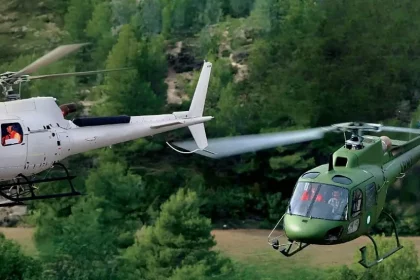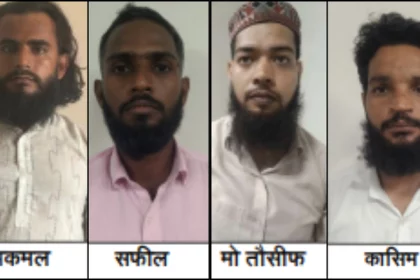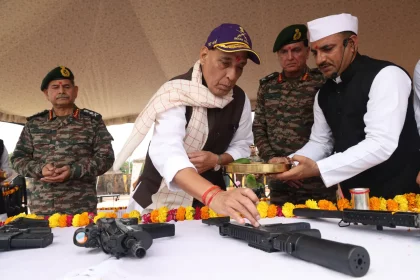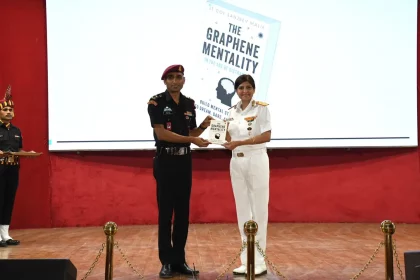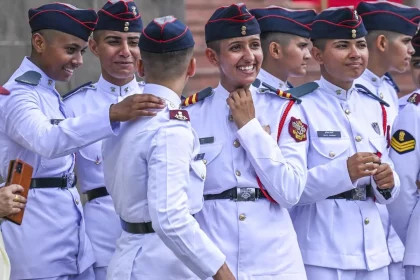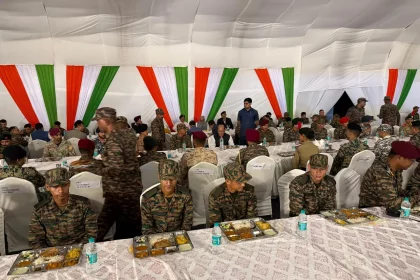Airbus and TATA Advanced Systems to Manufacture India’s First ‘Made in India’ H125 Helicopter; First Delivery by 2027
India’s First Private-Sector Helicopter Assembly Line to Deliver H125 by 2027.
UP ATS Foils Terror Plot, Arrests Four for Forming ‘Mujahideen Army’ to Topple Government
ATS busts Pakistan-inspired terror module plotting violent jihad in Uttar Pradesh.
General Upendra Dwivedi and Rajnath Singh Offers Prayers to AK-203 and Other Weapons During Shastra Puja in Bhuj
Army Chief honors cultural traditions while showcasing India’s push for modernization with AK-203 rifle in Bhuj.
Surg Vice Admiral Arti Sarin Launches ‘The Graphene Mentality’, Authored by Lt Col Sanjeev Malik
Book Highlights Human Spirit’s Strength and Resilience Through Lessons from Graphene.
NDA 2 2025 Result Out Now: Check UPSC NDA 2 2025 Result Here
A total of 8,148 candidates (7,648 Boys and 500 Girls) have successfully passed the written test and will now proceed…
Rajnath Singh attends ‘Barakhana’ with Soldiers in Bhuj
Rajnath Singh Urges Armed Forces to Embrace Innovation and Constant Readiness Amid Evolving Threats.

